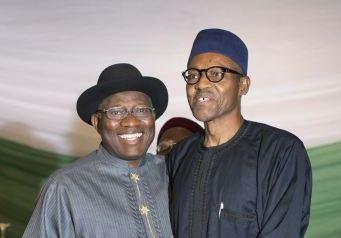South Africa’s ‘nationalistion’ debate – By Jolyon Ford, Oxford Analytica

For those in the risk analysis game, much of 2011 in South Africa was dominated by the ANC Youth League’s call for nationalisation of mines (a 60 percent state stake) and expropriation of farms. Indeed, the year ended with the ANC Limpopo provincial electoral conference adopting a declaration supporting the League’s position on nationalisation, although the conference outcome must be understood in the light of factional and provincial ANC politics.
The ANC’s senior leadership received in November the comparative experts’ report that it commissioned in 2010 into options for increasing the state’s role in mining. Now, there is very little likelihood that the national ANC policy machinery would embrace anything like a ‘nationalisation’ policy. But this leaves the situation open to any alternative that might emerge from the party’s national policy conference in June.
We have been working with clients on the report’s recommendations and a range of likely scenarios, but a blog entry isn’t the place for such things, or the place to outline all aspects of the debate. Nor is it necessary to explain how for all its resonance with many South Africans, the debate has, in part, represented a means of contestation within the ANC over leadership, a vehicle for factionalism, rather than a policy debate pure and simple. Instead, one interesting dimension to the debate is how expressions of support for “˜nationalisation’ encompass a range of potential policy preferences. This is one problem with the “˜MixIt’ survey conducted last year, which asked South Africans to express their approval or disapproval of the idea.
The open content of the idea is also apparent in the position of COSATU. The union federation in August expressed a commitment to “˜nationalisation’ (partly to avoid being outflanked on the left by the League), but carefully refrained from giving its position any substance. This is unsurprising – union unity in South Africa is routinely assumed and exaggerated; for quite understandable reasons there is considerable division within COSATU affiliates about the merits of nationalisation policies or talk.
The broad range of aspirations, grievances and ideas possibly captured by the “˜nationalisation’ debate means that there remains a great deal of scope still to shape that debate and the expectations it engenders or represents. Cabinet members have hardly exhausted the space available to them to show how nationalisation would frustrate rather than promote poverty-alleviation and economic empowerment, and to provide a credible and viable alternative narrative. In this sense, the panic and pessimism evident in some analysis of South Africa is unwarranted.
For its part, big business knows it must be wary about the ways in which it enters the debate, but is in a position to help shape what counts as transformation and economic empowerment. Business unity will remain at a premium in 2012, as will the need for compelling ways to demonstrate how it remains possible to reconcile social expectations with business realities.
The nationalisation debate is unlikely to evaporate entirely, and considerable discussion of the idea (however expressed) can be expected in 2012 throughout ANC alliance sub-structures. Despite the obvious harm the prolonged debate does to investor confidence, it is also possible to see it as healthy, at least where it leads to dealing more resolutely with the elephant in the room of the country’s political economy. Moreover, while SA is a unique setting, situations where the state takes a greater role in the mining sector may be received as compounding political risk for investors, but this is not necessarily so. A greater state role in a project can protect it from demands made in the longer term, as I’ve argued elsewhere.
As Youth League leader, Julius Malema’s “˜nationalisation’ ideas have some popular resonance given frustration over the pace and nature of the economic empowerment long-promised by the ANC and vital to the viability of South Africa’s social contract. To paraphrase Bobby Godsell, Malema has given some poor answers to some excellent questions about SA’s future. But it should be remembered that the League’s October march on the Chamber of Mines attracted a crowd that was miniscule compared with what history shows South Africa’s public is capable of when it really believes in an issue.
This too suggests that for now there remains considerable scope for the country’s political and business leadership to articulate a popularly credible and economically viable national vision for wealth creation and distribution. It will probably not be enough to point out how obviously ruinous nationalisation would be without understanding that such things are not necessarily obvious to many of the country’s youth, which needs to be persuaded of the merits of alternative paths, and is still open to being so persuaded.
Jolyon Ford is a senior analyst at Oxford Analytica, the global analysis and advisory firm.





